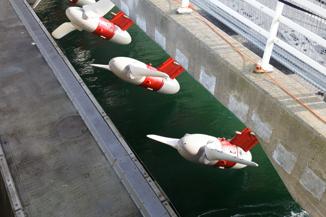The Race to Net Zero: Commercial and Legal Considerations
This article covers, at a high level, some of the legal issues that arise in the lifecycle of the innovation and deployment of new technology within the energy sector. It is not intended to be a comprehensive account of all legal aspects.
The UK’s goal to reach net zero greenhouse gas emissions by 2050 was first supported in the landmark 2021 publication of the Net Zero Strategy. The subsequent 2022 publication of the Energy Security Strategy builds on net zero, by pushing for an increased reliance on domestically produced renewable and nuclear energy to counteract supply and price volatility associated with imported energy.
This ultimately comes down to new innovations and technologies: how can we innovate to achieve success? This article provides a basic understanding of the UK government’s approach to the transition to net zero and some of the legal considerations of innovating in the sector.
What is the Government Suggesting?
The UK government is offering financial incentives to energy companies producing clean energy. To date, for instance, it has:
- provided upto £320 million in government support to companies involved in fixed bottom and floating wind ports and infrastructure;
- launched the £240 million ‘Net Zero Hydrogen Fund’; and
- committed £1 billion in public investment to decarbonise the UK’s industrial clusters.
Looking to the future, it is:
- pledging to extend the Energy Intensive Industries Compensation Scheme for another three years;
- considering increasing the renewables obligation exemption for energy intensive industries from upto 85% to upto 100%;
- looking to boost renewables by:
- cutting the consent time for offshore wind projects from four years down to one year;
- expressing interest in supporting the repowering of existing onshore wind sites where they require updating or replacing;
- consulting on amending planning rules for ground-mounted solar projects, so that development on non-protected land is easier;
- adding, and pledging to continue to add, solar power in the Contracts for Difference auction rounds;
- boosting nuclear energy production by:
- taking two nuclear projects to FID in the next Parliament;
- establishing and financially backing the Great British Nuclear Vehicle which will help companies through the development process of nuclear projects – the selection process is to be initiated in 2023, with successful candidates being given a government award as soon as possible; and
- setting up a hydrogen certification scheme by 2025 which will prove British hydrogen for export is high-grade, and will ensure that imported hydrogen meets the same high standard.
Innovation: Legal Issues to Consider
Energy producers/suppliers/utilities can benefit from applying and/or competing for available grants within the energy industry to capitalise on the UK government’s investment in clean energy.
The UK government strongly favours innovative practices in the race to net zero. For instance, innovation is required to see if existing gas pipes can be used to transport hydrogen, to see what energy storage facilities can be created to minimise energy waste, etc. Therefore, a number of grants given by the UK government favour projects that are heavily linked to innovation.
Grant Funding: Pre-Project considerations
As with any funding, there are usually rules to comply with. These rules can cover everything, from where research should be undertaken to who can own and access the IP rights in the outputs. When considering funding, it is important to ensure the right form of contract is used, picking up on any grant funding requirements in addition to ensuring subsidiary control is appropriately considered. For some of the regulated utilities, grant funding can also trigger procurement law requirements where the threshold is exceeded, as well as potential competition law issues in the drafting of R & D agreements. When looking to apply for funding, it is essential to look at the broad range of legal issues and construct a plan to eliminate risk from the application stage.
IP: Pre and Post-Project Considerations
Where there has been an innovative product manufactured or an innovative approach developed, it is important to think through what can and should be protected. Consideration as to registrability should be given − for instance, if you have created a ground-breaking method for using existing gas pipes to transport hydrogen, you may want to protect your idea by registering a patent.
Alternatively, a company may need to partner up with another company to deliver an end-product. In such circumstances, there would need to be consideration as to how to ‘share’ the IP and assets brought into the project or generated from the project, to ensure both parties are sufficiently protected.
Land and Planning: Testing and Implementation Phase
Energy producers/suppliers/utilities should remain aware of any changes to the process of obtaining consents, to ensure their project strategies are as up to date as possible, particularly with regard to timescales.
The planning law element involved in producing and supplying energy can be onerous to navigate. Access rights, connection points etc all need to be considered in a standard project. Furthermore, adding in a potentially new innovative approach and method to maximise net zero technologies is likely to present challenges beyond those obvious to see. It is recommended that land and planning issues are considered in advance of deployment or testing phases, to ensure any innovation developed does not stall when it runs into the more traditional regulated aspects of the industry.
Liability: Testing and Implementation Phase
The deployment of new technologies and methods in an industry steeped in regulation and public safety issues is obviously a challenge. It is important for safety considerations to be considered as early as possible in the innovation lifecycle, and for liability and risk to be apportioned appropriately amongst all partners through a robust set of contractual arrangements. The contracts can take many forms, for example innovation contracts, partnerships or joint ventures. There is no sole correct form, it will all depend upon the circumstances, any funding and the parties’ particular circumstances.
This article covers, at a high level, some of the legal issues that arise in the lifecycle of the innovation and deployment of new technology within the energy sector. It is not intended to be a comprehensive account of all legal aspects.
Please contact Selina Hinchliffe for further thoughts on the legal issues connected to the net zero shift.
Contact

Mark Hickson
Head of Business Development
onlineteaminbox@brownejacobson.com
+44 (0)370 270 6000








































